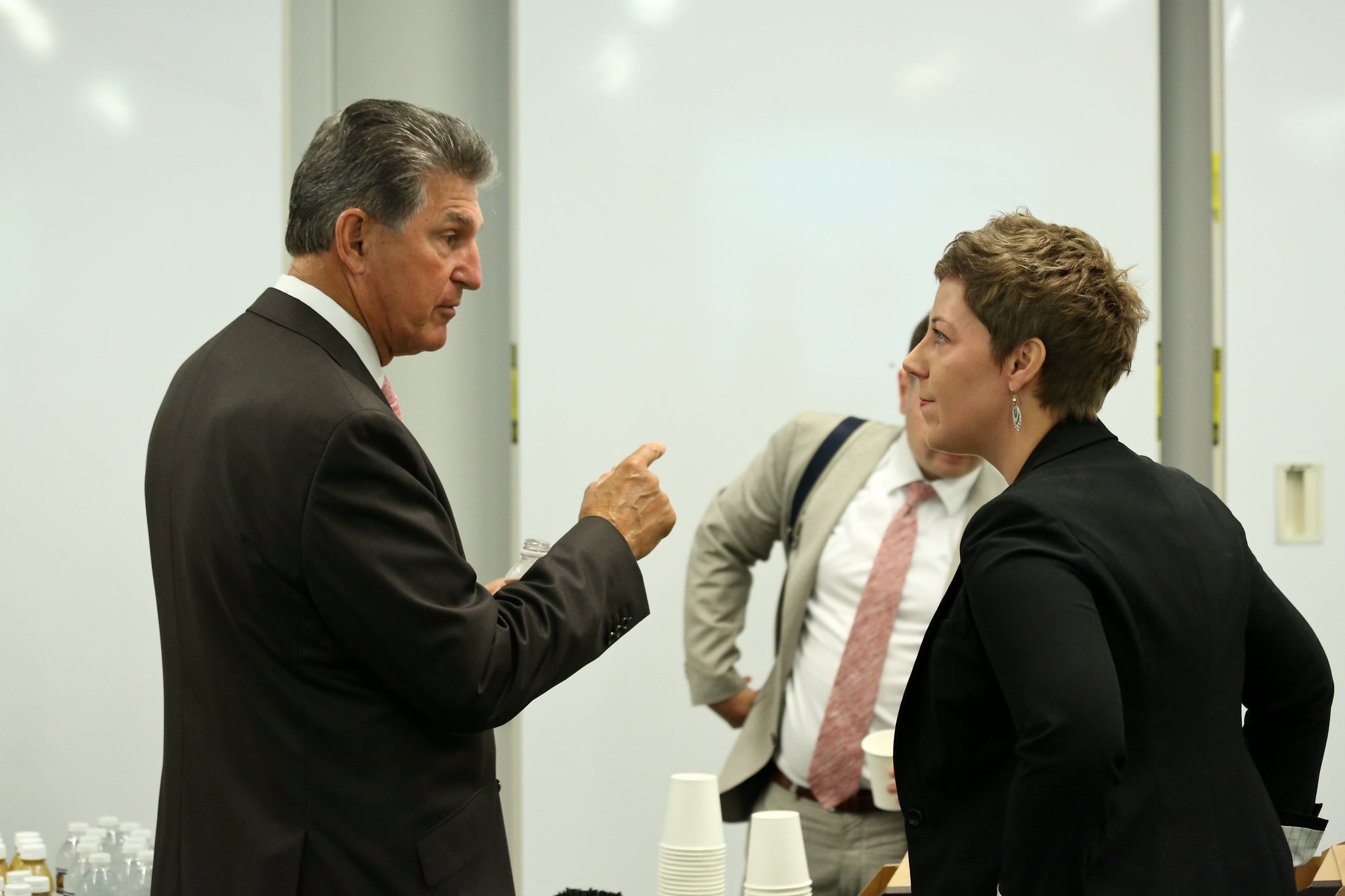Only Joe Manchin.

After an exhausting and grueling night on Capitol Hill Thursday, House Democrats managed to pass President Biden’s legislative package along party lines.
Hoping to be the future Speaker of the House post-2022, no doubt, House Minority leader Kevin McCarthy (R-CA) started speaking at 8:38 p.m. Thursday evening. He was expected to speak for about an hour; he didn’t stop speaking until after 5:00 a.m. Friday morning. McCarthy only managed to delay Build Back Better’s passage in the House, but he did manage to prevent any Republicans from voting for the bill.
Democrats had precious little chance to celebrate the bill’s passage through the news cycle. Their victory lap was cut short by the acquittal of Kyle Rittenhouse, who was on trial after killing two people and wounding another during the riots in Kenosha last year. The verdict, while not at all surprising to those who were following the case closely, dominated the news cycle, sucking all the air out of other stories.
There is another reason House Democrats were somewhat muted in their celebrations. The gauntlet for President Joe Biden’s legislation package stretches ahead, where West Virginia Senator Joe Manchin is waiting.
Build Back Better still needs to pass the Senate, no mean feat considering the near-deadlock between Republicans and Democrats. In fact, the dead-lock crosses party lines; in reality, it is between progressives and moderates.
Each insists it is responsible for the election successes of the past year; each insists the other is responsible for any failures.
The biggest problem for progressives still riding high on the 2020 victory over Donald Trump is that more recent elections have revealed a few troubling trends which some say should make Democrats panic; others say it should make Democrats go into shock.
Progressives might have had a mandate after the 2020 presidential election. Certainly, popular progressives like Rep. Alexandria Ocasio-Cortez were fundraising gangbusters. There is also an argument to be made for the idea that exciting progressive policy proposals like the Green New Deal drove Democratic voters to the ballot box.
But that was all last year.
This is this year.
It has become all too clear in the wake of the recent Democratic gubernatorial defeat in Virginia and the near-defeat in New Jersey that a great deal has changed for the electorate over the past 12 months since Joe Biden assumed the Oval Office.
Voters in general, and perhaps off-year election voters in particular, tend to be more conservative than their Twitter-dwelling counterparts.
Confusing Democrats on Twitter with Democrats at the ballot box isn’t helping Democratic candidates. Far-left progressives, on social media and from their positions with corporate media outlets, have aggressively pushed policies- like “defund the police”- thinking them popular. Instead, these far-left proposals have eroded Joe Biden’s support to the point that a popular incumbent Democratic Governor just struggled to win reelection- in navy blue New Jersey.
After the recent elections, Democratic moderates like Joe Manchin emerged more convinced than ever of their recalcitrance on the subject of more and bigger government spending packages for progressive wish list items.
To prevent more losses at the ballot box, Manchin might have a point. The Overton Window is always moving. Human civilization has been nothing so much as one long tug of war between the forces of conservatism and the counterbalancing force of progressivism.
There can be no denying which has been ultimately winning.
But the timing for sweeping progressive policy items, which are bound to worsen problems like high fuel prices and inflation in the short-term, might be entirely wrong.
A pandemic, an economic crisis, and the aftermath of same has made many moderate voters reluctant to give untested progressive ideas a proving ground at this time. It isn’t as if progressives need to change their positions; a short-term compromise is likely to serve progressive causes better in the end.
Because Democrats can’t do much of anything- moderate or progressive- if they can’t win elections in November.
There is plenty of time to turn things around before the mid-terms, especially if Democrats hold their noses and support two policies embraced by the former administration.
“Remain in Mexico,” might go a long way towards assuaging swing-district Democrats in Texas, who must have looked with horror on election returns in New Jersey and Virginia.
If things are this bad in Virginia and New Jersey, how will Democrats fare in places like Texas? There are plenty of moderate voters in border counties where little effort is being made to stem the growing tide of economic migrants or deal with the humanitarian crisis it is causing.
American energy independence isn’t the exclusive property of the Republican Party, either. In the U.S., traditional energy sources like oil, natural gas and coal can be produced more safely, and in ways that are better for the environment, with stricter labor standards, than elsewhere.
Outsourcing our dirty work from states like West Virginia to other countries with lower standards is hardly an environmentally friendly proposition. It is more a bourgeois “not in my backyard,” attitude than a principled stand against fossil fuels.
Investing in green technology, partnering with nations on the forefront of recycling and water reclamation tech, like Israel, and empowering U.S. businesses, on every level, to innovate our way out of this environmental morass are all better strategies than imposing austerity measures.
Imposing austerity measures via a work-around that circumvents all the pesky problems of democracy and the constitution isn’t going to work long-term, either.
These higher prices for fuel and goods might please progressives, who want people to drive less and buy less anyway, but they weren’t voted upon; they weren’t agreed to or elective like austerity measures in European nations.
If progressives want austerity, raising energy and food prices for the working-class is likely to achieve it.
In the wake of such trends, the Democratic Party might find itself making do with far less voters than it would like.
(contributing writer, Brooke Bell)